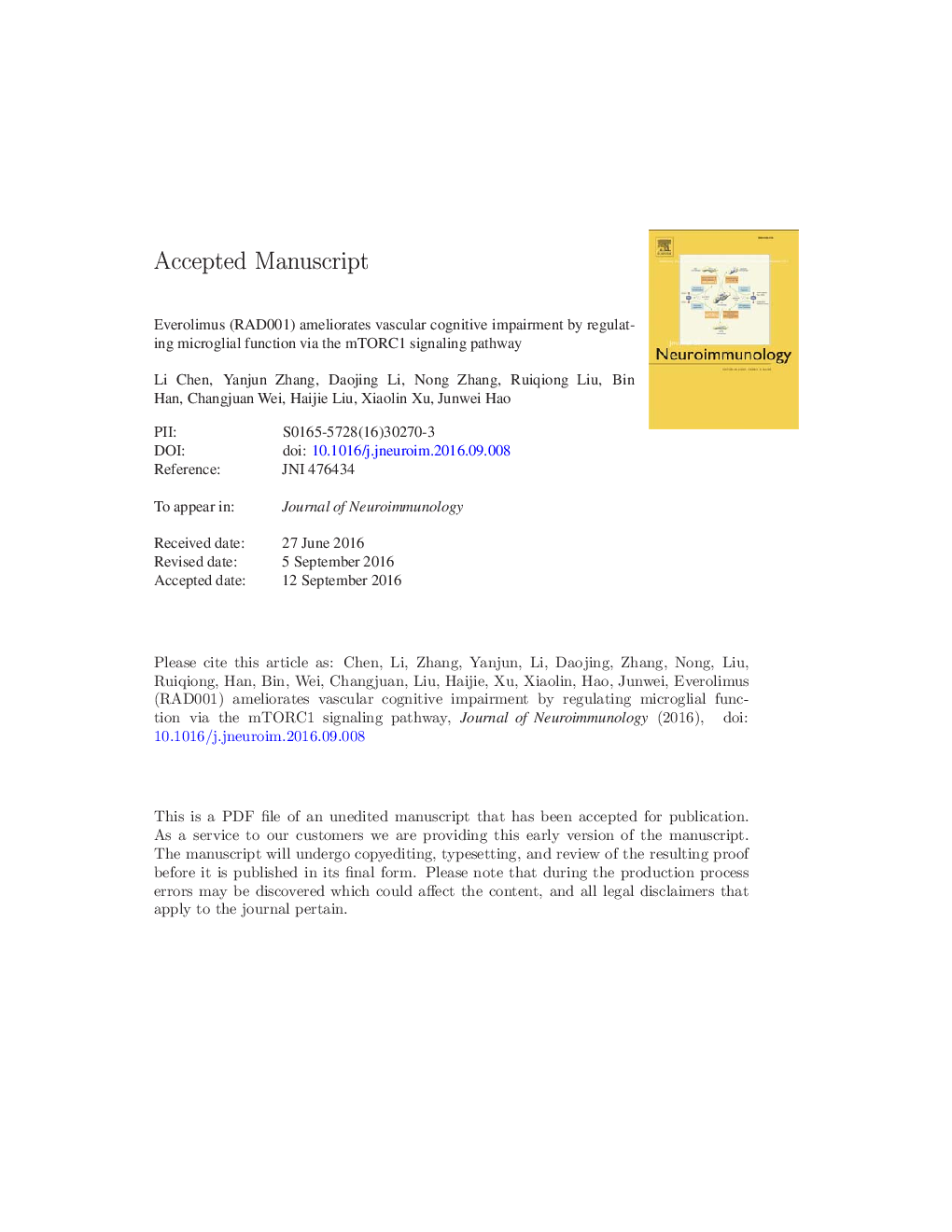| Article ID | Journal | Published Year | Pages | File Type |
|---|---|---|---|---|
| 8685883 | Journal of Neuroimmunology | 2016 | 34 Pages |
Abstract
RAD001 inhibited mTORC1 thereby decreasing the activity of P-p70S6k. Downregulated P-p70S6k then lost the feedback loop, leading to an increased activation of phosphatidyl inositol 3-kinase (PI3K). Afterward, active PI3K activated the prosurvival kinase, Akt, which then shifted microglia from the destructive M1 phenotype toward the beneficial M2 phenotype, thereby eliciting the protection of cholinergic neuron function. IRS-1, insulin receptor substrate 1.132
Keywords
OGDTGF-βRAD001ARG-1PGCmTORC1VAChTHIFMWMCBFPPARBCAsqRT-PCRDMEMH&EDulbecco's modified Eagle's mediumROSArginase-1AChEAcetylcholinesteraseinterferonIFNinterleukinAlzheimer's diseaseTransforming Growth Factor Betatumor necrosis factor alphacerebral blood flowvesicular acetylcholine transporterVascular dementiaTNF-αMorris water mazeOxygen glucose deprivationmTOR pathwayGenome-wide association studyGWASCognitive deficitsMammalian target of rapamycin complex 1hematoxylin-eosinChronic cerebral hypoperfusionreal-time polymerase chain reactionChATVADcholine acetyltransferaseReactive oxygen speciesperoxisome proliferator-activated receptor
Related Topics
Life Sciences
Immunology and Microbiology
Immunology
Authors
Li Chen, Yanjun Zhang, Daojing Li, Nong Zhang, Ruiqiong Liu, Bin Han, Changjuan Wei, Haijie Liu, Xiaolin Xu, Junwei Hao,
